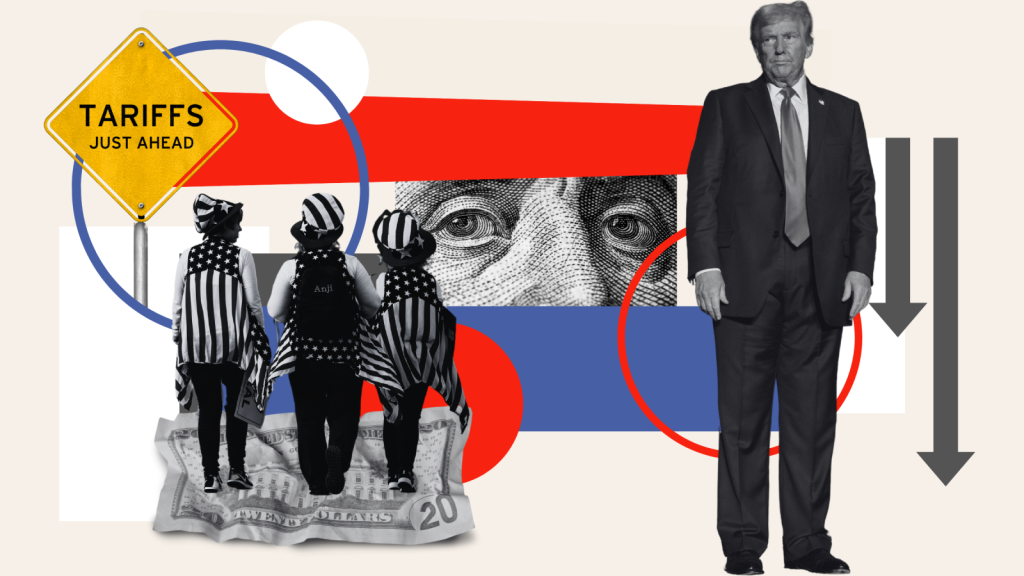
For nearly 35 years, Wyoming entrepreneur Alan Chadwick has successfully operated a business importing Western-style clothing from China, catering to “working cowboys” across the United States. However, with former President Donald Trump campaigning on a pledge to implement tariffs ranging from 10% to 20% on all imports, escalating to as much as 60% for goods from China, Chadwick faces a significant crossroads.
At 66 years old, he’s now considering alternatives like relocating his manufacturing to countries such as India or Pakistan, or even shutting down his Wyoming Traders business, which employs 16 people, and retiring. Chadwick views these tariffs as a “tax on the American people” and emphasizes that the costs associated with opening a factory in the U.S. are unfeasible for his operation.
Despite these challenges, Chadwick is preparing to vote for Trump, prioritizing issues like illegal immigration and opposition to abortion over the negative impact tariffs may have on his business. “I will vote for Trump even though he’s going to hurt our company if he does what he says he’s going to do,” he stated, reflecting a broader trend in American politics where voters are willing to overlook economic concerns in favor of other pressing issues.
Trump’s campaign marks a significant shift in Republican policy, moving away from a historical embrace of free trade towards protectionist measures aimed at safeguarding American jobs from foreign competition. During his first term, Trump imposed tariffs on thousands of Chinese goods, a strategy that President Joe Biden, despite previously criticizing it, has largely continued.
Now, Trump is emphasizing tariffs as a centerpiece of his presidential campaign, touting them as “the most beautiful word in the dictionary.” He argues that these tariffs will stimulate job growth, revitalize U.S. manufacturing, increase wages, and generate significant revenue from foreign nations. “We’re going to be a tariff nation. It’s not going to be a cost to you, it’s going to be a cost to another country,” he has claimed.
However, many economists refute Trump’s assertions, arguing that such policies are unlikely to create substantial jobs in the U.S. and could actually lead to higher costs for American consumers, ultimately hampering economic growth. The Tax Foundation predicts a potential reduction of 684,000 jobs and a GDP contraction of 0.8%, without factoring in likely retaliatory measures from other countries.
Households could face an increase in expenses of at least $1,700, according to the Peterson Institute for International Economics, one of the more conservative estimates. Wendy Edelberg, an economist and senior fellow at the Brookings Institution, criticized Trump’s promises, stating, “This is not the panacea that people are hoping for.”
Despite these economic warnings, polls indicate that Trump’s tariff proposals resonate with a significant portion of the electorate. A September Reuters/Ipsos poll found that 56% of likely voters supported his tariff plans. For instance, Kyle Plesa, a 39-year-old Trump supporter in Miami, acknowledged that while he doubts the exact impact of the tariffs, he appreciates Trump’s focus on the challenges posed by globalization. “I would probably prefer protecting business and paying a little bit more due to tariffs than I would dealing with the current state of inflation and raising taxes from the left,” he explained.
Conversely, Democratic presidential nominee Kamala Harris has criticized Trump’s tariff plans as akin to a “national sales tax,” proposing a more nuanced approach. Trump argues that revenue from tariffs could fund significant tax cuts, even suggesting the possibility of eliminating income tax entirely.
Biden’s decision to maintain and even expand some of Trump’s tariffs, particularly on electric vehicles, has allowed the former president to claim a policy victory. Both Biden and Harris have adopted a protective stance regarding American industries, showcasing a bipartisan shift towards restricting foreign investment.
Michael Froman, who served as the U.S. trade representative under Obama, noted that the trend towards protectionism appears to be entrenched. He stated, “There certainly is less enthusiasm around pursuing what we might call an affirmative trade agenda.”
Businesses have felt the sting of tariffs directly. Jason Trice, co-CEO of Jasco, an Oklahoma-based company, revealed that his firm has paid hundreds of millions in tariffs since 2019 while shifting manufacturing away from China. This change, he explained, has led to inefficiencies and increased costs, ultimately raising prices for consumers and contributing to inflation. Trice lamented, “In 50 years in business, the Chinese government has never done anything nearly as damaging to our business as what the Trump administration has done.”
Similarly, Lucerne International, a Michigan-based car parts supplier, is working to open a factory in the U.S. with government support. Yet, CEO Mary Buchzeiger cautioned against tariffs as a long-term strategy, arguing that they make American businesses less competitive globally. “All we’re going to do is continue to make ourselves uncompetitive on a global scale,” she stated.
As Chadwick and other business owners navigate these turbulent waters, the intersection of personal conviction and economic reality continues to shape their decisions in this complex political landscape.





